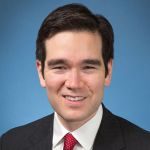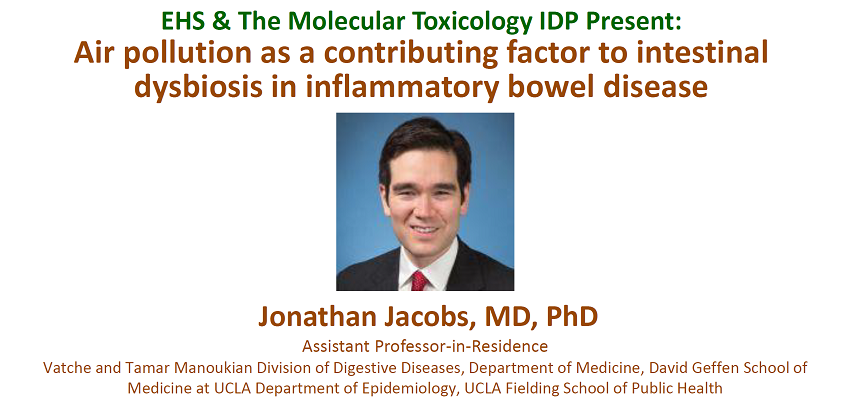November 24, 2021
2:00pm – 3:00pm
In this seminar, Dr. Jacobs will present his laboratory’s research on pre-disease alterations of the gut microbiome in populations at high risk for IBD and the potential contribution of air pollution to IBD-associated dysbiosis. Unaffected first-degree relatives of IBD patients have been found in two family cohort studies to have microbiome profiles consistent with the dysbiosis seen in IBD patients. Microbiota transfer experiments into gnotobiotic mice demonstrated that dysbiotic microbiota from unaffected relatives can exacerbate murine colitis. Many genetic and environmental factors could contribute to dysbiosis in IBD. Among these, airborne ultrafine particle (UFP) exposure is one possibility that is consistent with epidemiologic data on rapidly rising incidence of IBD in newly industrialized societies. In animal models, Dr. Jacobs and his collaborators have demonstrated that oral and inhaled ultrafine particles can induce alterations in the small intestinal and colonic microbiome. Experiments are ongoing to assess the impact of the UFP-modulated microbiome on IBD susceptibility.
 Dr. Jacobs is a gastroenterologist and scientist studying the role of intestinal microbes in inflammatory bowel disease (IBD) and other disorders. He graduated magna cum laude with highest honors from Harvard University in 2003 with an AB in biochemistry. He subsequently received his MD from Harvard Medical School in 2008, graduating magna cum laude in a special field. During college and medical school, he performed research on mechanisms of antibody-mediated arthritis in the laboratory of Diane Mathis and Christophe Benoist with funding from the Howard Hughes Medical Institute. He completed internal medicine residency at Stanford University in 2010 then joined UCLA to pursue gastroenterology training in the Specialty Training and Advanced Research program. He was awarded a PhD in Cellular and Molecular Pathology in 2015 for his research on the IBD microbiome under the mentorship of Jonathan Braun and afterwards joined the UCLA Division of Digestive Diseases faculty. He co-founded the UCLA Microbiome Center and now directs the UCLA Microbiome Core, which provides a comprehensive suite of microbiome-related services to support microbiome research by the UCLA scientific community.
Dr. Jacobs is a gastroenterologist and scientist studying the role of intestinal microbes in inflammatory bowel disease (IBD) and other disorders. He graduated magna cum laude with highest honors from Harvard University in 2003 with an AB in biochemistry. He subsequently received his MD from Harvard Medical School in 2008, graduating magna cum laude in a special field. During college and medical school, he performed research on mechanisms of antibody-mediated arthritis in the laboratory of Diane Mathis and Christophe Benoist with funding from the Howard Hughes Medical Institute. He completed internal medicine residency at Stanford University in 2010 then joined UCLA to pursue gastroenterology training in the Specialty Training and Advanced Research program. He was awarded a PhD in Cellular and Molecular Pathology in 2015 for his research on the IBD microbiome under the mentorship of Jonathan Braun and afterwards joined the UCLA Division of Digestive Diseases faculty. He co-founded the UCLA Microbiome Center and now directs the UCLA Microbiome Core, which provides a comprehensive suite of microbiome-related services to support microbiome research by the UCLA scientific community.
Supported by the UCLA NIEHS Training Grant in Molecular Toxicology T32ES015457.
Questions? Email us at coeh@ph.ucla.edu

